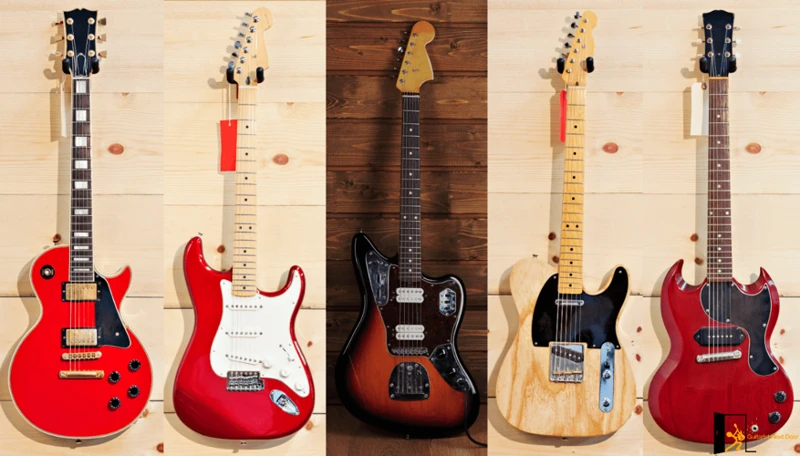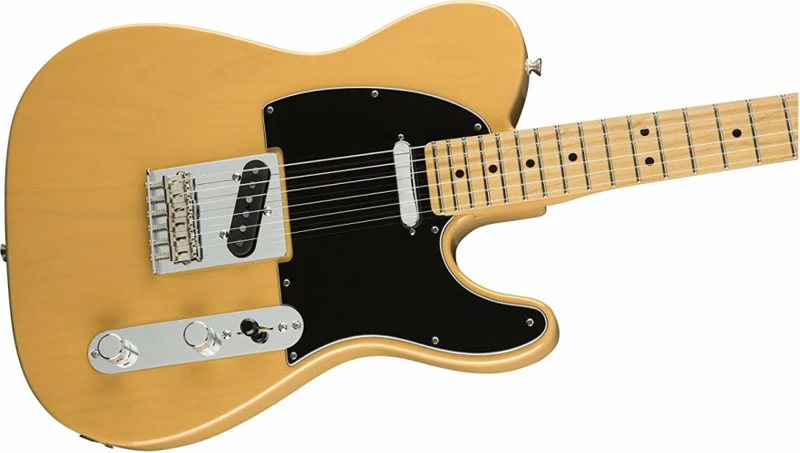Country music has a unique charm that resonates with many music enthusiasts around the world. One of the defining elements of country music is the twangy sound of the guitar, which plays a crucial role in creating the genre’s signature sound. If you’re looking to dive into the world of country guitar playing, this guide is here to help you get started on your musical journey. Whether you’re a beginner looking to learn the basics or an experienced player wanting to enhance your skills, this comprehensive guide will provide you with valuable insights and tips to master the art of country guitar.
Choosing the Right Guitar
The first step in your country guitar journey is selecting the right instrument. While any guitar can be used to play country music, certain types are more commonly associated with the genre. Acoustic guitars, particularly those with a bright and twangy tone, are popular choices for country players. On the other hand, electric guitars with single-coil pickups are favored for their ability to produce the classic country sound.
When choosing a guitar for country playing, consider factors such as body style, tonewood, and pickups. Acoustic guitars with spruce or maple tops are known for their clarity and projection, making them ideal for country strumming and flatpicking. Electric guitars with ash or alder bodies paired with single-coil pickups can deliver that quintessential twangy tone that defines country music.
Essential Techniques
To excel in country guitar playing, mastering essential techniques is key. One of the fundamental techniques in country music is hybrid picking, which involves using a pick in combination with your fingers to pluck strings. This technique allows for greater speed and precision, essential for playing intricate country licks and solos.
Another crucial technique in country guitar playing is chicken picking, a style characterized by the use of muting techniques and rapid picking to create a percussive and dynamic sound. By practicing chicken picking, you can add texture and groove to your country guitar playing, making your performance stand out.
In addition to hybrid picking and chicken picking, mastering bending and sliding techniques is essential for capturing the expressive and emotive quality of country music. By incorporating bends and slides into your playing, you can infuse your guitar lines with the nuances and nuances that define the country genre.
Creating Authentic Country Sounds
To truly capture the essence of country music, it’s essential to familiarize yourself with the characteristic sounds and styles of the genre. One hallmark of country guitar playing is the extensive use of open chords and chord embellishments to create a rich and vibrant harmonic texture. By incorporating open chords such as G, C, and D into your playing and experimenting with embellishments like hammer-ons and pull-offs, you can achieve that classic country sound.
In addition to chords, mastering the art of twangy single-note lines and double stops is crucial for crafting authentic country solos and melodies. By practicing scales such as the major pentatonic and mixolydian scales in different positions on the fretboard, you can create melodic lines that evoke the spirit of country music.
Furthermore, integrating techniques such as palm muting and string bending into your playing can enhance the dynamic range and expressiveness of your country guitar performance. By experimenting with various techniques and incorporating them into your playing, you can develop a unique and authentic country guitar style that reflects your personality and musical sensibilities.
Gear Essentials
In addition to mastering techniques and honing your playing skills, having the right gear is essential for achieving the desired country guitar sound. When it comes to amplification, tube amps are widely preferred by country players for their warm and responsive tone. Amplifiers from brands like Fender and Vox are popular choices for their ability to deliver the classic country sound with clarity and definition.
Moreover, effects pedals play a significant role in shaping the tone and texture of country guitar playing. Pedals such as reverb, delay, and compression are commonly used by country guitarists to add depth and dimension to their sound. Additionally, pedals like overdrive and tremolo can be employed to create vintage-inspired tones that evoke the classic country sounds of the past.
When selecting pedals for your country guitar rig, consider your playing style and the sonic palette you wish to explore. Experimenting with different pedal combinations and settings can help you discover unique tones and effects that enhance your country guitar playing and inspire new musical ideas.
Developing Your Style
While learning techniques and mastering gear is essential for becoming a proficient country guitarist, developing your unique style is what sets you apart as a musician. Experimenting with different playing approaches, exploring various musical genres, and listening to a wide range of artists can help you cultivate a distinctive voice and musical identity.
By studying the playing styles of legendary country guitarists such as Chet Atkins, Merle Travis, and Brent Mason, you can gain valuable insights into the nuances and intricacies of country guitar playing. Analyzing their phrasing, tone, and improvisational techniques can inspire you to develop your own approach to country guitar and push the boundaries of the genre.
Moreover, collaborating with other musicians, attending live performances, and participating in jam sessions can provide you with opportunities to expand your musical horizons and refine your playing skills. By engaging with the vibrant country music community and seeking feedback from fellow musicians, you can grow as a guitarist and continue to evolve your style.
Recording and Performing
Once you’ve honed your country guitar skills and developed your unique style, the next step is to showcase your talent through recording and performing. Whether you’re recording demos, playing live shows, or collaborating with other musicians, having a solid understanding of recording techniques and stage performance is essential for sharing your music with the world.
When recording country guitar tracks, pay attention to factors such as mic placement, room acoustics, and signal chain to capture the best possible sound. Experimenting with different recording setups and techniques can help you achieve a polished and professional sound that highlights your playing and musicality.
Moreover, when performing live, focus on connecting with your audience, conveying emotion through your playing, and delivering a memorable and engaging performance. By engaging with the crowd, showcasing your technical prowess, and infusing your playing with passion and energy, you can captivate listeners and leave a lasting impression with your country guitar performance.
Looking to delve into the world of country guitar? Check out our articles on country guitar amplifiers, country guitar makers, country guitar evolution, history of guitar picks in country music, and country guitar techniques for a comprehensive guide to mastering this beloved musical genre!
Conclusion
In conclusion, country guitar playing is a rich and rewarding musical journey that offers endless opportunities for creativity and expression. By selecting the right guitar, mastering essential techniques, creating authentic country sounds, and developing your unique style, you can become a proficient country guitarist and make your mark in the vibrant world of country music.
Whether you’re strumming chords, picking intricate solos, or embellishing melodies with twangy licks, country guitar playing is a versatile and dynamic art form that allows you to explore a wide range of musical styles and genres. With dedication, practice, and a passion for music, you can unlock your full potential as a country guitarist and share your love of music with audiences around the world.



